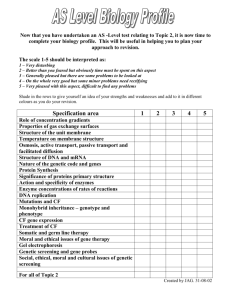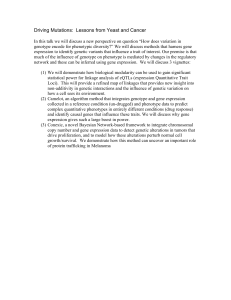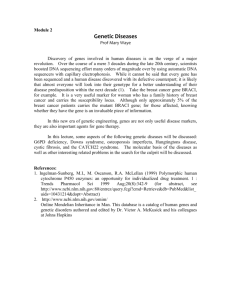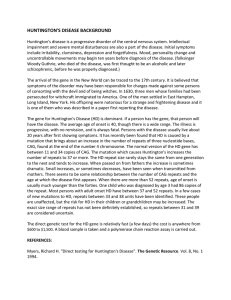Symptomatic Testing for Huntington Disease Confirmation of Diagnosis
advertisement
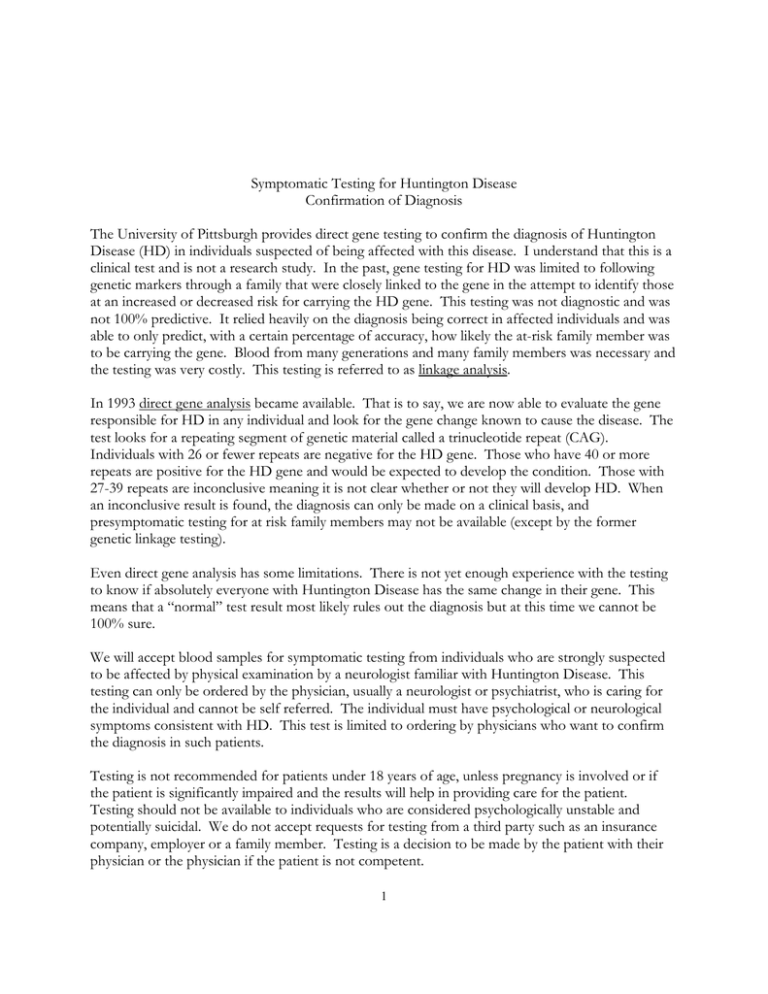
Symptomatic Testing for Huntington Disease Confirmation of Diagnosis The University of Pittsburgh provides direct gene testing to confirm the diagnosis of Huntington Disease (HD) in individuals suspected of being affected with this disease. I understand that this is a clinical test and is not a research study. In the past, gene testing for HD was limited to following genetic markers through a family that were closely linked to the gene in the attempt to identify those at an increased or decreased risk for carrying the HD gene. This testing was not diagnostic and was not 100% predictive. It relied heavily on the diagnosis being correct in affected individuals and was able to only predict, with a certain percentage of accuracy, how likely the at-risk family member was to be carrying the gene. Blood from many generations and many family members was necessary and the testing was very costly. This testing is referred to as linkage analysis. In 1993 direct gene analysis became available. That is to say, we are now able to evaluate the gene responsible for HD in any individual and look for the gene change known to cause the disease. The test looks for a repeating segment of genetic material called a trinucleotide repeat (CAG). Individuals with 26 or fewer repeats are negative for the HD gene. Those who have 40 or more repeats are positive for the HD gene and would be expected to develop the condition. Those with 27-39 repeats are inconclusive meaning it is not clear whether or not they will develop HD. When an inconclusive result is found, the diagnosis can only be made on a clinical basis, and presymptomatic testing for at risk family members may not be available (except by the former genetic linkage testing). Even direct gene analysis has some limitations. There is not yet enough experience with the testing to know if absolutely everyone with Huntington Disease has the same change in their gene. This means that a “normal” test result most likely rules out the diagnosis but at this time we cannot be 100% sure. We will accept blood samples for symptomatic testing from individuals who are strongly suspected to be affected by physical examination by a neurologist familiar with Huntington Disease. This testing can only be ordered by the physician, usually a neurologist or psychiatrist, who is caring for the individual and cannot be self referred. The individual must have psychological or neurological symptoms consistent with HD. This test is limited to ordering by physicians who want to confirm the diagnosis in such patients. Testing is not recommended for patients under 18 years of age, unless pregnancy is involved or if the patient is significantly impaired and the results will help in providing care for the patient. Testing should not be available to individuals who are considered psychologically unstable and potentially suicidal. We do not accept requests for testing from a third party such as an insurance company, employer or a family member. Testing is a decision to be made by the patient with their physician or the physician if the patient is not competent. 1 Genetic counseling for the family involved with the affected person is strongly recommended as the testing results will impact heavily upon those family members at risk. Results will only be given to the physician who requested the testing and will not be available for release to other family members or other health care professionals by the University of Pittsburgh. Information on how to order the testing is included with this fact sheet as well as a consent form to be signed by the affected individual or guardian and the physician requesting testing. Questions regarding testing or genetic counseling can be directed to: Betsy Gettig, M.S. Genetic Counselor Department of Human Genetics University of Pittsburgh (412) 624-7368 If an individual is not clearly symptomatic, they should be considered presymptomatic and deserve the genetic and psychological counseling involved in the presymptomatic testing program. They also deserve the chance to choose not to have the testing at this point in their lives. Revised: 01/01/01 2

